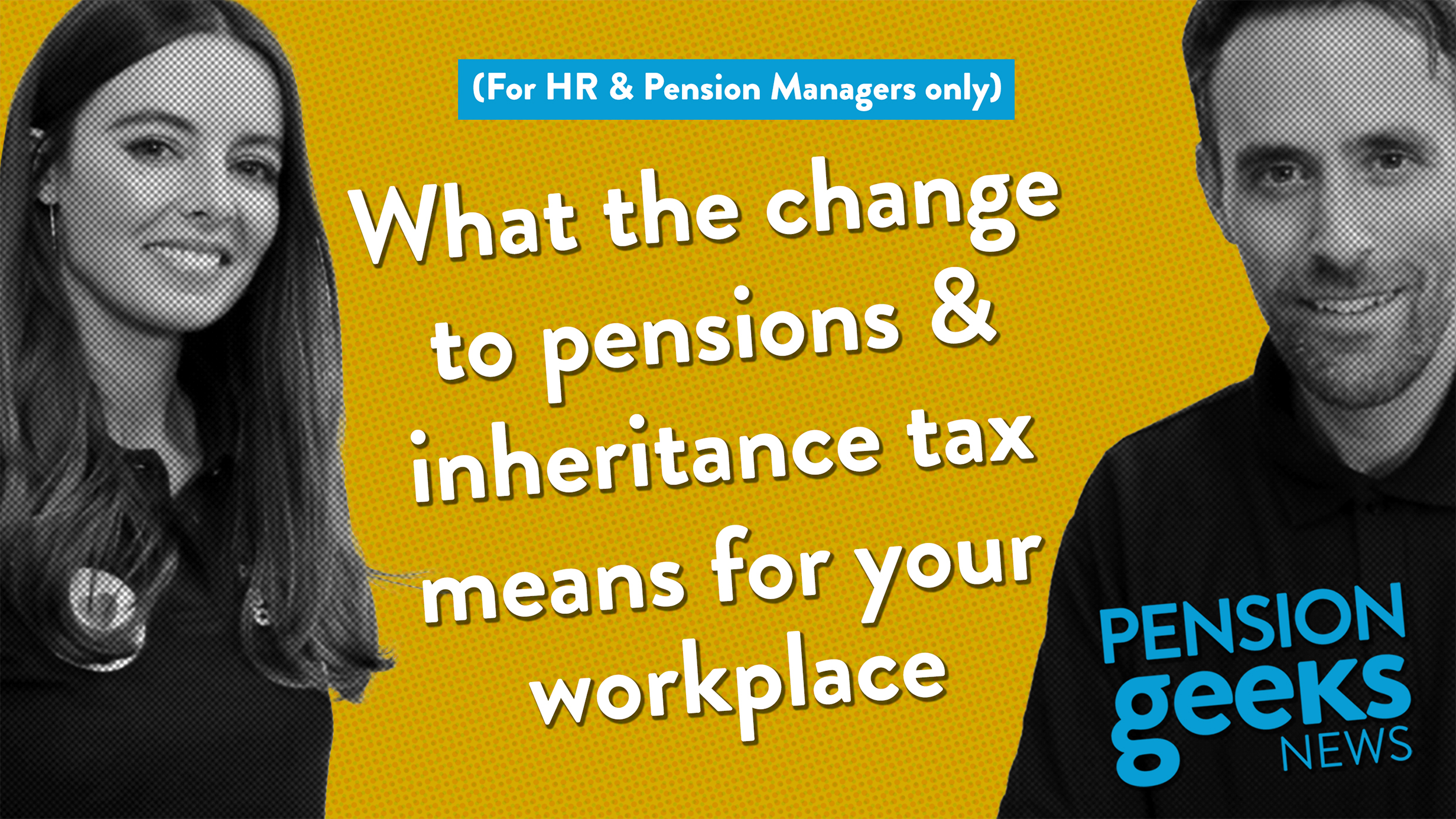Pensions subject to Inheritance Tax from 2027 – how will this affect me?
A 5 minute read

One major change announced in 2024’s Autumn Budget was that pensions are going to be subject to Inheritance Tax from 2027. So, what does this mean for you and your pension? Read on to get the lowdown…
Some big news from 2024’s Autumn Budget might have you scratching your head and wondering what it means for your hard-earned pension savings.
Let’s break it down in a way that’s easy to understand and, hopefully, a little less daunting.
What was the change announced in the Autumn Budget 2024?
First things first, let’s talk about the big announcement. As of April 2027, pensions are going to be subject to Inheritance Tax (IHT).[1]
Currently, when someone passes away, many unused pensions and death benefits can be passed on to beneficiaries without attracting IHT.
If you die before the age of 75, your pension can normally be inherited tax-free – if you pass away after, your beneficiaries will pay income tax at their personal tax rate.
But, under the proposed new rules put forward by the Labour government, the value of these unused pensions and death benefits will be added to a person’s estate for IHT purposes and could be subject to the tax.
What is Inheritance Tax?
Inheritance tax is a tax on the estate (that’s all the money, property, and possessions) of someone who has passed away. Think of it as a final bill that needs to be settled before any remaining assets can be passed on to the people who inherit the estate.
The good news is that not necessarily everyone has to pay it. Inheritance tax only kicks in if the value of the estate is above a certain threshold.
As of now, that threshold is £325,000.[2] So, if the total value of everything you own is less than that, your estate won’t have to pay any inheritance tax.
But, if your estate is worth more than £325,000, the amount above that threshold could be taxed at a rate of 40%.[2]
However, there’s ways to reduce the amount of inheritance tax your estate might have to pay, like giving gifts during your lifetime or leaving money to charity. Civil partners and married couples are also able to pass their assets to their civil partner/spouse tax-free when they pass away.
So, what does Inheritance Tax on pensions mean for me?
If you have a Defined Contribution pension and you don’t use all of it before you pass away, the remaining amount will be added to your estate. If the total value of your estate exceeds the threshold above which IHT is payable, your pension scheme administrator might have to pay IHT on the excess amount.
The government estimates that this change will affect around 8% of estates each year.[1]
What can I do to avoid a big tax bill?
Now, we know what you’re thinking: how can I avoid leaving a hefty tax bill? Here are a few things you might consider:
- Reduce the value of your estate: One way to potentially avoid IHT is to reduce the value of your estate to below the threshold. This could involve making gifts during your lifetime or setting up trusts. MoneyHelper has some great resources on how to do this.
- Buy an annuity, or take drawdown income: An annuity can provide you with a regular income for life, which means you might use up more of your pension during your lifetime, leaving less to be taxed upon your death. You can use the money in your pension to buy an annuity. Drawdown income allows you to withdraw money from your pension on a regular basis, as and when you need it.
- Take out a life insurance policy in trust: This can help cover any IHT liability, ensuring your beneficiaries receive the full value of your estate.
Which course of action is right for you will depend on your personal circumstances. Estate and tax planning can be pretty complex, too – so it’s always a good idea to get advice from an expert. A solicitor or an independent financial adviser can help you navigate these changes and come up with a plan that works best for you and your family.
Remember, it’s still early days
It’s important to note that this announcement is still undergoing consultation. The precise rules and how they will work are subject to confirmation.
A consultation was published on 30 October 2024 and will run for 12 weeks until 22 January 2025.[3] So, there’s still time for things to change.
Some final thoughts
This change to how pensions are treated for IHT purposes is a significant one, and it’s understandable if you’re feeling a bit overwhelmed. But remember, it is still early days, and there’s plenty of time to plan for the future.
Keep an eye on the Government’s website for updates on the consultation, and don’t hesitate to seek professional advice to make sure that you’re making the best decisions for your future, and your loved ones. It’s worth it.
Sources:
[1] Autumn Budget 2024 – HC 295. Data source, HM Treasury. October 2024.
[2] How Inheritance Tax works: thresholds, rules and allowances: Overview - GOV.UK. Data source, Gov.uk. Accessed November 2024.
[3] Technical consultation - Inheritance Tax on pensions: liability, reporting and payment - GOV.UK. Data source, HM Revenue and Customs. Accessed November 2024.
DO NOT EDIT THIS BOX UNLESS YOU'RE NOEL

